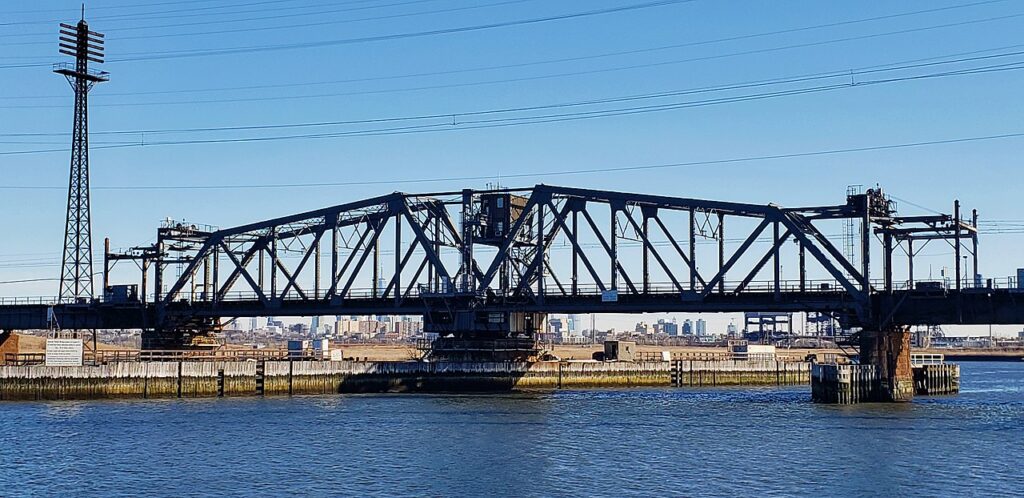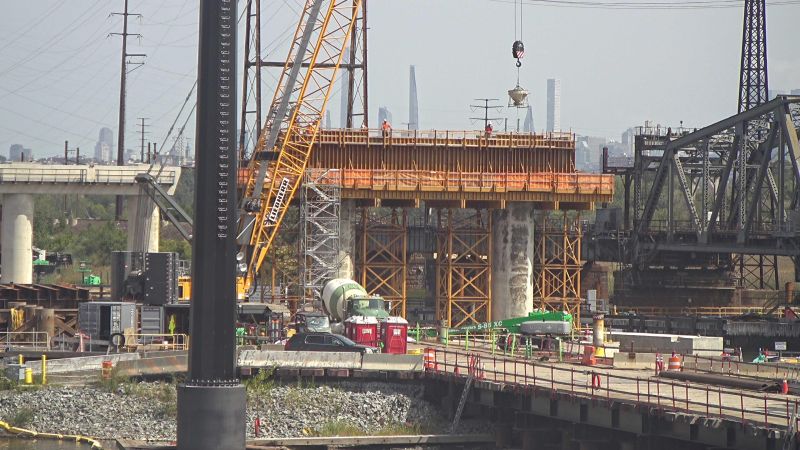NJ Transit and Amtrak are replacing the century-old Portal Bridge over the Hackensack River in New Jersey with a higher bridge that will not have to open for traveling ships. The new bridge, Portal North, will be high enough to maintain traffic flow over the river without disruptions from river traffic.
The existing Portal Bridge was built by the Pennsylvania Railroad and entered service in November 1910. Prior to the COVID-19 pandemic, the bridge carried more than 450 daily Amtrak and NJ TRANSIT trains and 200,000 daily passengers over the Hackensack River, making it a critical bottleneck in the vital area between Newark, New Jersey and Penn Station, New York. The two-track moveable swing span is a major source of delays, particularly when the aging bridge malfunctions during opening and closing for maritime traffic.

A new two-track bridge – Portal North – will replace this outdated relic with a modern, high-level fixed span, providing enough height for ships traveling beneath it. This will eliminate the need for movable components, and therefore the and risk of malfunction. The new bridge will rise 50 feet over the river and, including the approaches, span nearly 2.5 miles of the Northeast Corridor. Portal North Bridge is an important element of the broader Gateway Program that intends on doubling rail capacity between Newark and New York.
In October 2021, the NJ Transit Board of Directors approved a $1.6 million contract with Skanska/Traylor Bros Joint Venture for the construction of the new Portal North Bridge, the largest award in NJ Transit’s history. The contract includes construction of retaining walls, deep foundations, concrete piers, structural steel bridge spans, rail systems, demolition of the existing bridge, and related work expenses. The construction contract was anticipated to take approximately five and a half years to complete when it began in 2022, and is currently slated for completion in 2027.
The project is being funded by the US Department of Transportation, Transportation Trust Fund, New Jersey Turnpike Authority and Amtrak. In January 2021, Governor Murphy announced the signing of a Full Funding Grant Agreement which secured $766.5 million from the Federal Transit Administration to support the project’s final design and construction.
NJ Transit’s Invitation for Bid (IFB) for the construction contract was also advertised in January 2021. The procurement was a two-step process, starting in May with the Special Pre-Qualification of Bidders. Once NJ Transit pre-qualified four bidders, it then conducted a pre-bid conference and Disadvantaged Business Enterprise outreach. Two of the pre-qualified bidders submitted proposals on September 2nd, with Skanska-Traylor PNB Joint Venture of Queens, New York being deemed the lowest responsible and responsive bidder.











